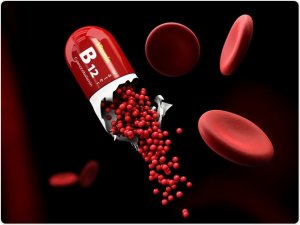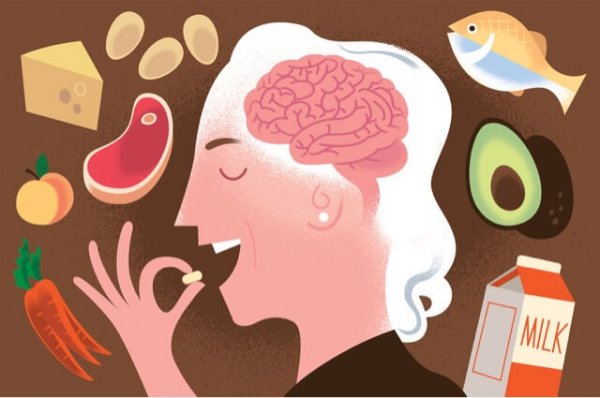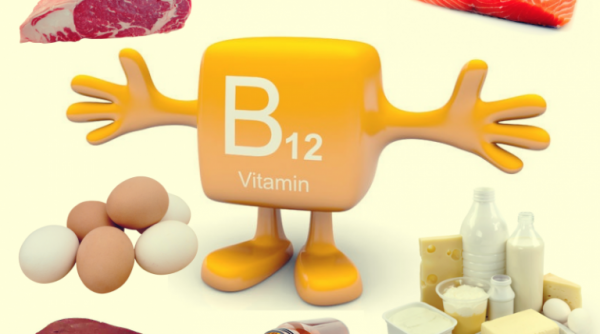Vitamin B12 Deficit and its Impact on our Brain


Written and verified by the psychologist Valeria Sabater
Vitamin B12, also known as cobalamin, is essential our brain’s health. However, a part of the population suffers from vitamin B12 deficit, causing slow, but progressive, problems with concentration, mood changes, etc. Also, this vitamin is key to the proper functioning of many processes in your body.
In our diet, there are indicators, such as levels of iron, potassium, phosphorus or vitamin C, to which many pay attention in order to care for their health.
Many of us probably have not heard or read anything about this soluble nutrient. It is essential for our brain and nervous system to function, for the formation of blood and the synthesis of certain types of proteins.
Vitamin B12 is a shield for our brain.
It takes care of our cognitive functions and our psychological health.
The big problem with vitamin B12 is that as we get older its levels descend. This is because our digestive system weakens and does not synthesize it properly.
Likewise, not taking proper care of our diet, greatly restricting or eliminating certain types of food, such as meat, without taking vitamins to replace them, causes cobalamin to alter many basic processes little by little, both organic and psychological.
It’s example enough that one of the diagnostic tests that many psychiatrists ask before treating their patients is for vitamin B12 deficit. They know well that when a person has a low level of this vitamin in their blood, there can be mental changes.

Vitamin B12, very necessary for the health of our brain
What’s interesting is that vitamin B12 is the most complex of all the vitamins. It is basic for our development, and essential for us to reach old age in good physical, and above all, mental condition.
However, until recently the deficit of this vitamin was associated exclusively with a type of anemia, where the red blood cells are larger than normal and where patients experience severe hand and leg cramps.
Deficiency in this component could be involved (but is not the determining factor) in anxiety and depression disorders. So vitamin B12 acts as a brain protector, and a lack of it can favor other problems:
- A deficiency of vitamin B12 in pregnant women puts the brain development of the fetus at risk.
- Vitamin B12 promotes serotonin formation, the happiness hormone. Lacking it may make us feel more apathetic, nervous, or have bad moods.
- This vitamin optimizes neuron functioning. If we have vitamin B12 deficit, we will have a higher risk of dementia, which leads to Alzheimer’s (remember, there is a correlation, but it is not a direct cause).
- It is known that people with schizophrenia and autism usually have a low level of vitamin B12.
- Lacking B12 usually means low energy, lack of concentration, memory loss, etc.

What can we do to look after our vitamin B12 levels?
Before assuming that we suffer from a vitamin B12 deficiency, we advise consulting our doctor or a good nutritionist. Experts should assess – according to our symptoms and their diagnosis – whether or not we need to have vitamin supplements.
But it is always a good idea to watch what we eat. Something that we do know is that after we pass 50 we start to lose levels of vitamin B12. For that reason, it never hurts to think about talking to a specialist and following a good medical and diet plan.
Now let’s see what we can do in our diet to make sure we don’t have a deficit of vitamin B12.

Ideas on how to increase vitamin B12 levels
Let’s look at some ways we can increase our vitamin B12 levels:
- Do not drink more than 2 or 3 cups of coffee a day.
- Consume these vitamin B12-rich foods more:
- Oysters
- Clams
- Octopus
- Lamb liver
- Salmon
- Herring
- Whole grains
- Tuna
- Cod.
- Lobster
- Cheese
- Eggs
- Antacids and stomach medicines often destroy vitamin B12.
- Intestinal parasites make it harder to absorb this vitamin. If you think you may be suffering from this it’s a good idea to speak to your doctor.
- We can also test for Helicobacter Pylori bacteria. Its presence is often dangerous to our health.
To conclude, as we can see it’s not very complicated or expensive to take care of our vitamin B12 levels. It’s enough to follow a varied and balanced diet. We should also take care of our digestive and intestinal health so our body can carry out its functions.
This text is provided for informational purposes only and does not replace consultation with a professional. If in doubt, consult your specialist.








